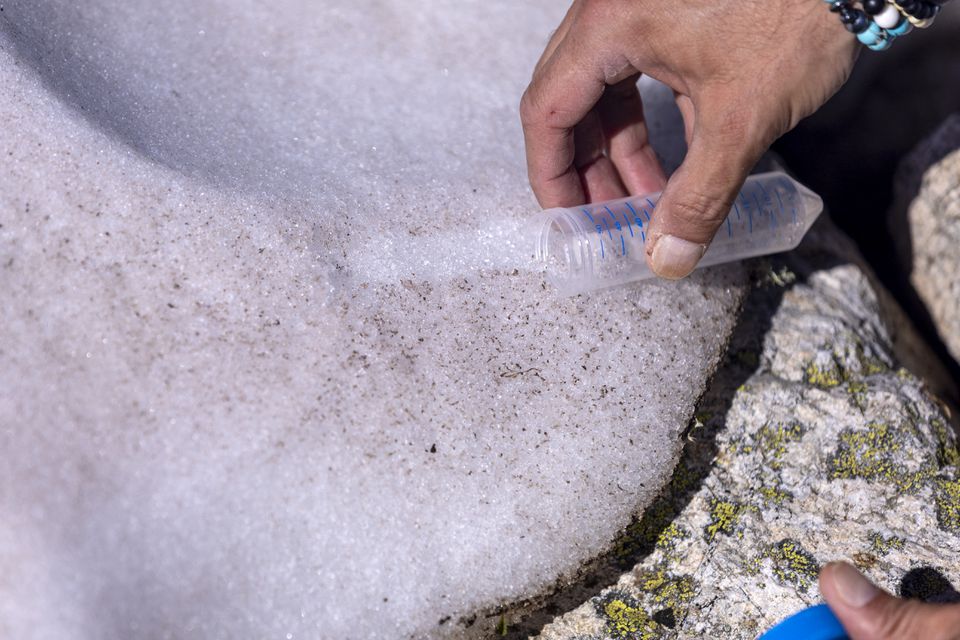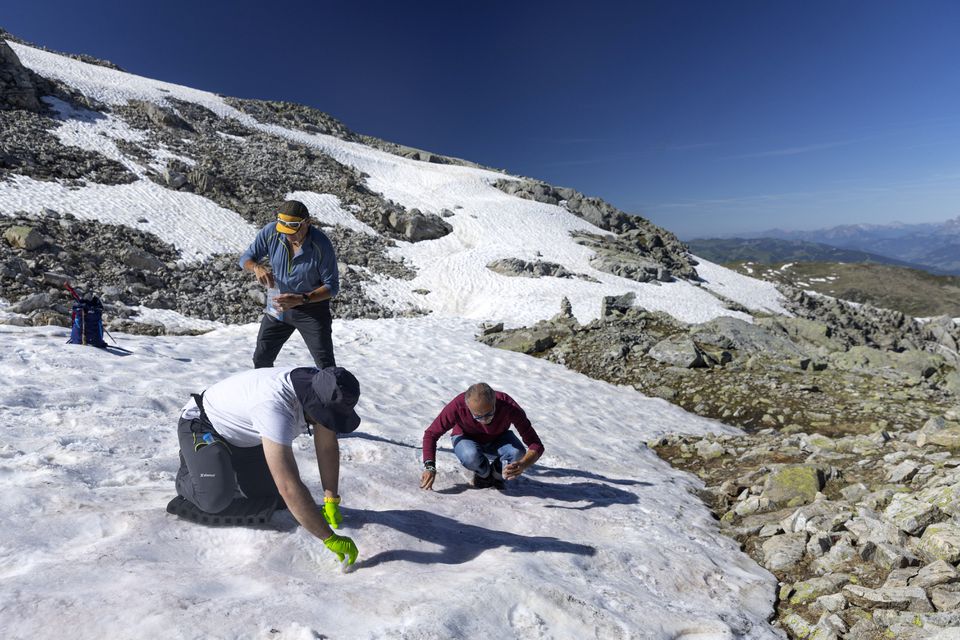Standing on a snowy mountainside about 2,500 metres above sea level, Eric Marechal holds up a crimson test-tube. Inside is an algae sample known as "snow blood," a phenomenon that accelerates Alpine thaw and that scientists worry is spreading.
"These algae are green. But when it's in the snow, it accumulates a little pigment like sunscreen to protect itself," said Marechal, research director at Grenoble's Scientific Research National Center, who was collecting laboratory samples on Le Brevent mountain with teammates.
Around his feet, patches of red snow can be seen gleaming in the sunlight.
The algae was first described by Aristotle in the third century BC. But it was only formally identified and given its Latin name Sanguina nivaloides in 2019.
Scientists are now racing to understand it better before its too late, with snow volumes falling due to rising global temperatures which are hitting the Alps disproportionately hard.
"There's a double reason" for studying the algae, Marechal explained. "The first is that's it is an area that is little-explored and the second is that this little explored area is melting before our eyes so it's urgent," he said.
|
|
| Alberto Amato, Ludovic Gielly and Jade Ezzedine of the Cell and Plant Physiology Laboratory of Grenoble take samples of the Sanguina nivaloides algae, also known as 'snow blood' and which presence accelerates snowmelt at the Brevent in Chamonix, France, June 14, 2022. Picture taken June 14, 2022. Photo: Reuters |
Some scientists, including Alberto Amato, genetic engineering researcher at CEA Centre de Grenoble, say the volumes of algae appear to be growing due to climate change, with higher carbon dioxide concentrations in the atmosphere favouring blooms.
Research is ongoing and what is certain is that the presence of the algae accelerates snow-melt, since algae's pigment reduces its ability to reflect the sun's heat.
Other types of algae, including a purple variety, as well as soot from forest fires have the same effect. If the algae do spread, snow and glacier melt around the world could speed up.
"The warmer it is, the more algae there are and the more the snow melts quickly," said Amato.
"It's a vicious circle and we are trying to understand all the mechanisms to understand this circle so we can try to do something about it."



















































